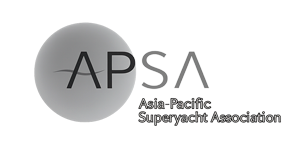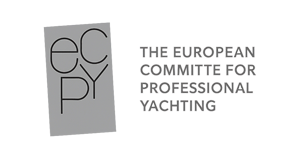In March 2017, much to the concern of the yachting industry, the French Government announced its plans to enforce social security coverage on certain seafarers, including some superyacht crew working on foreign-flagged vessels that spend significant time in French waters.
The information was relayed via a Decree on French Social Security, and this initially specified that all French national and French resident crew members employed on a foreign-flagged vessel would need to be registered to a French social security scheme, unless they were registered to pay into a social security scheme of another EU member state or a state with a bilateral social security treaty with France.
The Decree also said that the rules would apply regardless of whether the yacht is commercially or privately registered, as long as the vessel is spending more than 90 consecutive days in France.
It would be the responsibility of the employer to check and ensure that crew are in compliance of the Decree, and failure to do so could constitute a criminal offence or eventually lead to the yacht’s arrest.
The yachting community – through industry associations, various companies and legal experts – joined forces in petitioning to amend or reverse the Decree, to minimise the impact on the yachting industry in the South of France and prevent yachts from leaving for other countries that had not imposed such rulings.
The French Government responded by issuing an amendment to the Decree, which would allow crew who were affected by the new rulings to join a private social security scheme rather than the one provided by the ENIM (the French organisation in charge of French seafarers’ social security), as long as the private scheme provided equal or more coverage and payments than that of the ENIM.
By 1 January 2018, there were three options presented for the crew who fall into the categories of qualification:
Option 1: The crew member joins the ENIM social security scheme in France.
Option 2: The crew member makes a contribution to the state social security regime of another EU-member state or another state that has a bilateral social security treaty with France (this can be related to the Flag of the vessel, or the nationality or residency of the crew member).
Option 3: The crew member is subscribed to a private social security scheme that provides equal or greater social protections (including medical care, employment injury benefits, disability benefits, sickness benefits, life insurance, family benefits, maternity cover and a pension fund, but not including unemployment benefits).
What is certain at this time is that the rules of the Decree are applied to those crew working on yachts who are either French citizens or French residents (meaning they have their main interests in France, such as a house, family or pay tax in France), irrespective of the location of these yachts.
Those crew who have a continuous and uninterrupted presence on French territory for over 90 days also fall within the scope of the Decree, but there have been some challenges put forward by law firm Ince & Co. as to how this is interpreted. There is a particular lack of clarity regarding responsibilities when a crew member changes employment from one yacht to another and the 90 days threshold is then exceeded by the crewmember but not the yacht.
The French Government considers it the employer’s responsibility to check whether the Decree’s rulings apply to each crew member on a case-by-case basis and to ensure that, if applicable, the crew member is sufficiently covered by one of the three options above. Levels of coverage and benefits provided by P&I and Standard Crew Welfare systems are not deemed sufficient by the French authorities.
The employer is liable to pay any necessary contributions on behalf of the crew member and there is a risk to the employer should they fail to make the payments, for example if the crew member lodges a complaint with the authorities. As mentioned above, failure to pay required contributions could, in some cases, lead to a yacht’s arrest.
It is important for employers to note that, although some crew insurance companies have been developing programmes to provide social security coverage to the level required by the Decree, there have been no written French authority approvals of these as yet, only verbal ones. It is also unclear as to how controls will be carried out on board, at this point.
It is recommended that employers assess individual situations for each of their crew members based on nationality, current social security protection, family situation, the flag of the yacht and the intended programme of the yacht. Any crew who are French citizens or French residents should be covered by one of the three social security protection options above without delay.
If a yacht is expecting to spend more than 90 consecutive days in French waters, and a crew member is on board for this period, the employer should prepare for the possibility that they will need to provide social security protection for that crew member, once clarification has been made for this particular situation.
The general consensus within the yachting industry is that in the future these rules and requirements are unlikely to remain isolated to France and will be enforced across the EU, as they are a consequence of the internationally ratified Maritime Labour Convention 2006. Leaving French waters is unlikely to provide a long-term solution to avoid the changes to crew social security obligations.
Should you have any questions or requests for further information on this topic, please contact the YACHTZOO Yacht Management Division.
This article is for information purposes only. The information and opinions expressed in this document does not constitute legal advice and should not be regarded as a substitute for legal advice.







